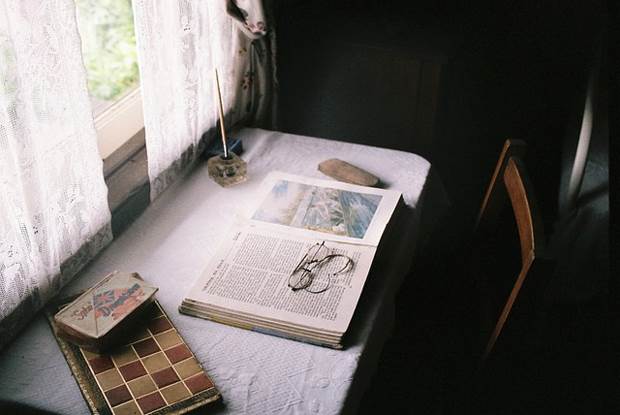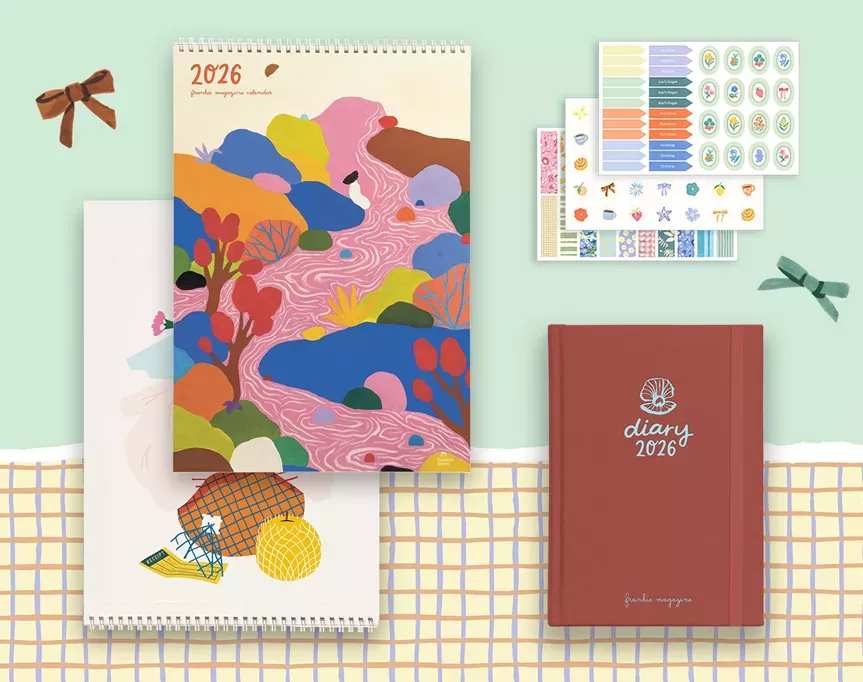frankie's guide to australian books
Here are some suggestions for Australian books that might not make you want to spontaneously burst into flames.
I love a sunburnt country. Just kidding, I hate it – or at least I used to think I did, because our pal Dorothea Mackellar’s “My Country” didn’t exactly resemble the Australia I knew. Maybe if it had included a verse about banana Paddle Pops or at least a couplet about a Holden Commodore, then I would’ve been on board. Yep, when I first came across this classic old Aussie poem, I basically went screaming in the other direction. It was so old-fashioned! So “filmy” and “misty”! Sorry, Dot, my friend.
Another consequence of my aversion to Ms. Mackellar’s ode to “sapphire-misted mountains” and dead cattle (yes, really) and its companions the Jolly Swagman and The Man from Snowy River, was that I decided I hated all Australian literature. But now that I am older and wiser (it was my birthday last week) I have come around most decidedly to the beautiful work penned in our wide brown land. If anyone out there is still afflicted with Anti-Dorothea Mackellar Syndrome, though, here are some suggestions for Australian books that might not make you want to spontaneously burst into flames:
If you’re right in the throes of ADMS, it makes sense to start as far away as possible. Luckily, most Australians came from somewhere else in the world so we have a bucketload of material to choose from – one might even say that our land abounds with Australian books set elsewhere. Robyn Cadwallader’s The Anchoress is about a teenage girl in England. If that doesn’t sound different enough to the corner Charcoal Chicken, then what about this: she’s a teenage girl in 1255. Sarah has decided to be an anchoress – to lock herself into a room in order to fully embrace God. Close and spare, this novel explores the psychological terrain of a religious woman and the way her world regards her.
Or you could just go fully off-track with a series I’ve been waiting almost my whole life to complete: Isobelle Carmody’s Obernewtyn books. (Not that I’m trying to shame Isobelle, but I read the first book when I was 13; the final book in the series came out in November. Game of Thrones fans will understand.) Set in a post-apocalyptic world (this seemed a more novel concept 20 years ago), it follows orphan Elspeth Gordie, who can communicate with people and animals in her head. If you don’t think that’s cool, we can’t be friends.
Creeping a little closer to home, we find The People of the Book by Geraldine Brooks. Brooks is a national treasure who conjures up intense, moving portraits of other eras and territory as if by magic. Hanna Heath, an Australian rare-book expert, has been called to Sarajevo to examine and restore a centuries-old Haggadah, a book that details the order of the Passover service. Precious and mysterious, the book yields several clues to its history: a small red stain, a white hair, an insect’s wing. Tracking the book’s movements by way of these tiny items, we dive deeper into its history, encountering unforgettable characters who endure hardship and celebrate the beauty of life.
Okay, are you feeling a bit more comfortable now? Let’s go with an everyday Australia kind of book. If you’re in the mood to luxuriate in gorgeous-yet-spare writing, Favel Parrett’s Past the Shallows is a heartbreaking story of three brothers whose father’s bitter cruelty has whipped their lives into the thinnest of threads. You better get onto this one because it was singled out by Oprah’s Book Club, and O is never wrong.
Pretty much my ideal thing to do is lie down and watch Law and Order: SVU. So, no surprises – Australian crime books are also some of my go-tos. Peter Temple’s novels, especially Bad Debts (which was made into a movie for the telly a couple of years ago) and The Broken Shore (which you should read if you like dogs, because it has amazing dog characters in it, just trust me) are beautifully written and addictive. Emma Viskic’s Resurrection Bay is a great one if you like to steamroll through a book right to the end. This thriller’s prose clips along as Caleb Zelic investigates the death of his business partner, turning up all kinds of trouble as he goes.
Now I think you’re ready for the big guns. Reacquaint yourself with unforgiving terrain in the best possible way: with Wake in Fright, a classic that might give you nightmares, but at least you’ll never think of Australia as familiar ever again. Country teacher John Grant decides on a whim not to go back to Sydney over the break, and instead gets caught in a terrifying procession of events. Imagine Labyrinth, but instead of David Bowie you get constitutionally drunk men, weirdos with secret agendas, and kangaroo hunting. If you can look this Australia dead in the eye you’re a stronger person than I. You may need to follow that one up with Jill Stark’s High Sobriety. Stark’s memoir details her heavy drinking habit and consequent research into how it is affecting her body and mind. Her careful, personal approach helped me recontextualise the ‘Strayan habit of drink, something that was surprisingly challenging.
Not as crazed, but no less unflinching, is Evie Wyld’s After the Fire, A Still Small Voice, a novel about three generations of Australian men, all isolated and traumatised in their own way. Sounds grim, but Wyld writes about the bone-dry setting with a lyrical tenacity; it’s one of the most memorable portrayals of landscape I have ever come across. Ol’ Mackellar is smiling somewhere in Australian Heaven. I hope they have Golden Gaytimes there.














.jpg&q=80&w=316&c=1&s=1)













.jpg&q=80&w=316&c=1&s=1)










